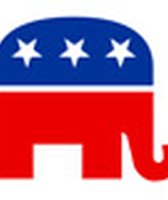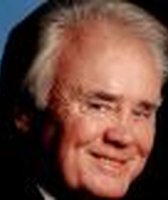Stand up for the facts!
Our only agenda is to publish the truth so you can be an informed participant in democracy.
We need your help.
I would like to contribute
SUMMARY: In an essay, PolitiFact editor Bill Adair explains why facts are important — and why we nitpick.
PolitiFact, our Web site that fact-checks the presidential candidates, reached a milestone last week. We've now checked more than 200 claims from the candidates and used our Truth-O-Meter to declare whether they were accurate.
We've explored Rudy Giuliani's boasts about reducing crime in New York (we found them False to Mostly True, depending on the claim), Hillary Clinton's accusation that the Bush administration cut health research (False) and John Edwards' claim that nearly half the apple juice in the United States comes from China (Mostly True).
We've explored serious topics, such as who was first to oppose the Iraq war, and less serious ones such as the lengthy form to apply for college financial aid. We have assessed Bill Richardson's claim that history shows that fences don't work (Half True, because of the effectiveness of the Berlin Wall) and we checked Dennis Kucinich's assertion that more people have seen UFOs than support the Bush presidency (False; "Bush beats aliens by 16 points," our headline said).
We've gotten lots of positive feedback. Dozens of readers have written to say they like the site. A Philadelphia Inquirer columnist said PolitiFact "is done with both class and sass." A University of Florida journalism professor called it "maybe the best politics site ever."
We've also heard some complaints, especially on our Truth-O-Meter rulings. Some readers thought we were too harsh on Clinton for her claim about medical research funding, because the Bush administration has cut the money in the last few years, even though the overall budget is still up.
Other readers have accused us of being too liberal, too conservative — or too hard on Ron Paul. A Paul supporter said we did a "hit piece" on the Republican congressman when we pointed out there were exceptions to his claim that he only votes for bills "expressly authorized by the Constitution." The reader's complaint, echoed by a few other critics, is that we are nitpicking.
We plead guilty.
We don't expect politicians to tell the truth all the time, but we believe that you, the voters, have a right to know when they don't. It's our job to check the facts and tell you what you can believe, and what you shouldn't.
Our 200 items reveal a wide range of errors by the candidates. Many come during debates, under the glare of the klieg lights and the pressure of live television. Other mistakes come during interviews and press conferences, which bring some of the same pressures.
Many of those can be considered misdemeanors. It's plausible the candidates simply got their facts wrong or forgot details from their briefing books. Many — but probably not all — are honest mistakes.
The most glaring errors we've checked came during speeches, when candidates often read a prepared text, and from their TV and radio ads. When they're preparing their speeches and TV ads, the candidates and their staffers have plenty of time to get the facts right.
Indeed, the Giuliani campaign had time to research prostate cancer in the United States and Britain before airing a radio ad declaring that the survival rate for American men was almost twice as high as "under socialized medicine" in Britain.
Lisa Greene, our medical writer, checked research journals and interviewed cancer experts and found that Giuliani's numbers were wrong. But despite being rapped on the knuckles by PolitiFact and other fact-checking groups, Giuliani kept airing the ad.
Likewise, I'm sure the speechwriters at the Mitt Romney campaign knew they were cherry-picking the statistics by blaming the defense cuts of the 1990s on President Clinton. I'm sure about this because, when I asked them for materials to support their claim, they provided me with stats that clearly showed the defense cuts began not under Clinton, but under the first President Bush after the end of the Cold War.
The cuts continued under Clinton, with the support of a Republican Congress. Yet Romney has made it sound like Clinton single-handedly crippled our nation's defense.
Equally wrong was Edwards' claim that if members of Congress did not pass universal health care in the first six months of his term, he would strip them of their own health benefits. As a former senator, Edwards undoubtedly knows full well that the president can't unilaterally take away the benefits of the legislative branch. We gave him our lowest rating, Pants on Fire.
Those are facts that matter. The candidates got them wrong — and should have known better. For too long, we've tolerated lies and exaggerations as standard fare in American politics. That's why we created PolitiFact.
Yes, some of the facts we check can be small and, sometimes, even silly. Mistakes made on the fly, during debates and news conferences, may not be as egregious as premeditated falsehoods. But collectively they paint a portrait about a candidate.
And so, it's important that we nitpick. If we let our candidates take liberties with the small things, can we expect them to be truthful about the big ones?












































